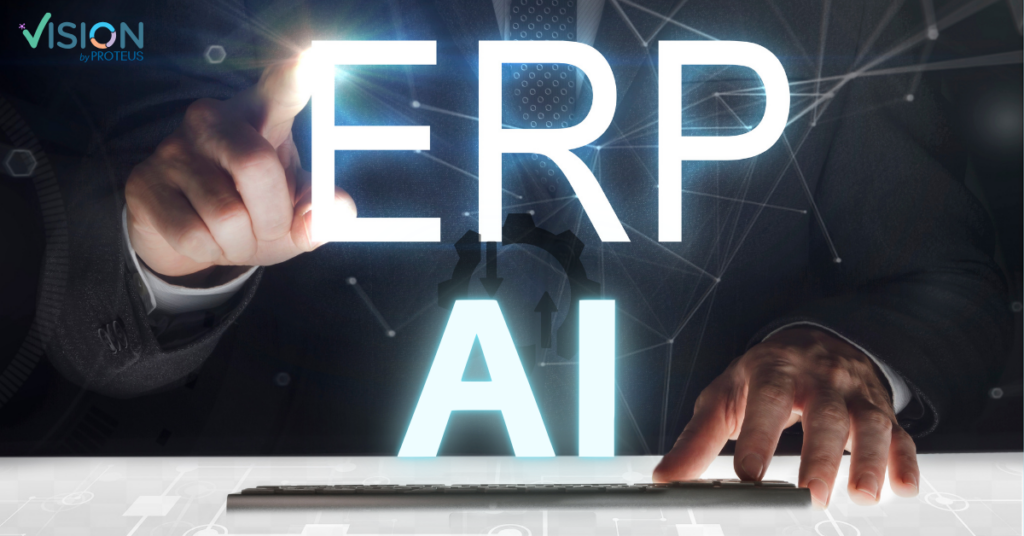
General AI has become a must have for Enterprise Resource Planning (ERP) systems. It’s transforming ERP by automating decision-making, improving operational efficiency, and enhancing customer engagement. Within ERP systems, it enables businesses to streamline their workflows, boost productivity, and gain actionable, data-driven insights.
The role of AI continues to evolve, with emerging advancements including autonomous decision-making, integration with IoT devices, and real-time system adaptability. Businesses adopting AI-powered ERP solutions will gain a competitive edge by enhancing scalability and operational efficiency.
Incorporating general AI with ERP systems delivers transformative benefits, such as automating routine tasks, enabling smarter decision-making, and enhancing customer experiences. As AI technologies advance, businesses that adopt AI-driven ERPs like Vision ERP will be better equipped to adapt to market demands, drive efficiency, and achieve long-term success.